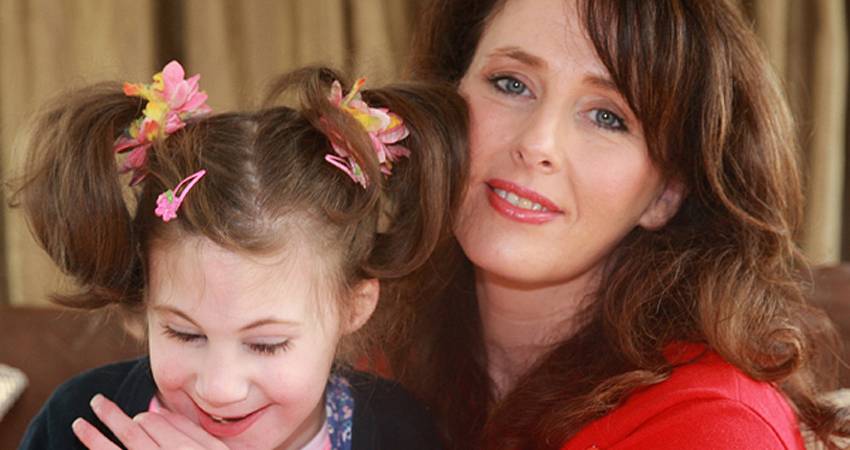
'My daughter was not a fatal abnormality' - Parents dismayed at use of offensive term at Citizen’s Assembly
Parents whose children have been diagnosed with life-limiting conditions such as anencephaly or trisomy 13 have said that they were shocked and dismayed at the decision of Justice Mary Laffoy to use the misleading term ‘fatal, foetal abnormality’ when discussing such conditions at the Citizens Assembly. They have written to Ms Laffoy asking her to reconsider her decision to use the term, which they said, did not provide clarity to the debate but did cause enormous distress and hurt to parents whose babies had died. “In the past two years in particular, legal experts, medical professionals and parents have all confirmed that this phrase is not just offensive, it is medically meaningless and deeply misleading,” said Tracy Harkin of Every Life Counts, a support group for parents. “Justice Laffoy should reconsider her decision since this outdated and ignorant expression has no place in a meaningful discussion about the support required for parents facing the devastating news that their baby may not live for long after birth. The correct term ‘life-limiting condition should be used, as was decided by the HSE recently.”
Tracy and Kathleen Rose. Photo Credit: Bill Smyth
“My daughter, Kathleen Rose, has Trisomy 13 – described in the media as a ‘fatal, foetal abnormality’ - but we’ve just celebrated her 10th birthday. This is a meaningless and most offensive phrase, which doesn’t inform parents, and is being used to dehumanise children like my daughter, and argue for abortion. I am appalled that Justice Laffoy would justify the use of a discriminatory and politically-loaded term and cause so much hurt to parents,” said Ms Harkin. Tanya Coonan of Every Life Counts said that she had found Ms Laffoy’s decision distressing.
“My little girl Lillie lived for two hours after birth. She was my daughter, not a fatal foetal abnormality. I had the chance to hold her. I smiled at her beautiful baby face and kissed her warm, soft cheek and held her tiny little hand. I don’t understand how Justice Laffoy can use this phrase which is hurtful and meaningless and undermines the value of my baby’s life. The phrase adds no clarity to the debate but does cause unnecessary distress and offence to bereaved parents, ” she said. Ms Harkin said that she had written to Justice Laffoy today to bring her attention to the evidence which confirmed that the phrase ‘fatal foetal abnormality” should not be used. She said that these developments had been included in the submission made by Every Life Counts to the Assembly.
Research shows that there is no agreed category of medical conditions which can be described as ‘fatal’ or ‘lethal, since for all of these conditions, research shows that children have lived beyond birth, sometimes for years.(1) In fact, even with the most severe disorders, such as anencephaly, studies show that most babies do, in fact, live after birth and that parents will have time to make memories with their children.
Research shows that 72% of babies with anencephaly live after birth, even briefly, while babies with Trisomy 13 or 18 have lived for weeks, months and years after birth. Parents should not be deprived of the love and joy that comes from this precious time. (2,3)
The Royal College of Obstetricians and Gynaecologists have pointed out that the phrase ‘fatal, foetal abnormality’ is not to be found in any medical textbook, with Dr Jim Dornan telling BBC (03/12/2015) that it was not a medical term and that “no doctor knows exactly when a foetus is going to die”.
The HSE, in revising its Standards National Standards for Bereavement Care following Pregnancy Loss and Perinatal Death decided to use the more correct term ‘life-limiting condition’. (4)
The Chief Medical Officer advised Health Minister Simon Harris that the phrase ‘incompatible with life’ was flawed because “the circumstances in which such a situation would arise do not exist in medical practice.”
“At the Assembly, we heard Dr Peter McParland say that doctors ‘tend not to use the term fatal or lethal in our practises. We tell the mother this is the condition we think will result in your baby having a short life’. It would be most remiss of Ms Laffoy to ignore the evidence regarding this misleading term and to continue to cause hurt and offense to parents,” said Ms Harkin.
(1) Wilkinson, D.J.C., Thiele, P., Watkins, A., and De Crespigny, L. Fatally flawed? A review and ethical analysis of lethal congenital malformations. Br J Obstet Gynaecol. 2012; 119: 1302–1307
(2) Jaquier M, Klein A, Boltshauser E. 'Spontaneous pregnancy outcome after prenatal diagnosis of anencephaly.' British Journal of Obstetrics and Gynaecology 2006; 113:951–953 (3) Nelson KE, Rosella LC, Mahant S, Guttmann A. Survival and surgical interventions for children with trisomy 13 and 18. JAMA. doi:10.1001/jama.2016.9819. (4) HSE National Standards for Bereavement Care following Pregnancy Loss and Perinatal Death. (5)
Featured
- Abortion coercion has arrived in Ireland – the NWC are silent
- Review of at-home abortions 'needed after coercion case'
- French Govt to remind 29-year-olds of biological clock
- Huge factor in decline in primary school numbers ignored
- Germany Denies Promoting Abortion Abroad—While Funding Pro-Abortion NGOs
- Govt don’t oppose Coppinger abortion bill at 1st stage
- March for Life: Vance, the White House, and a Divided Pro-Life Movement
- Paris’ Annual March for Life Puts Euthanasia in the Spotlight
- Britain’s seemingly limitless abortion rate
- The importance of the work carried out by Every Life Counts
- Puerto Rico officially recognizes unborn children as ‘natural persons’
- Assisted suicide laws stalled by “complex” legal issues
- Yes, that hideous celebration of 300 abortions is real
- White Crosses Memorial: Dungarvan once again pays its respects to our aborted babies
- Josiah: Abortion Survivor
- Rally for Life 2025
You can make a difference.
DONATE TODAY